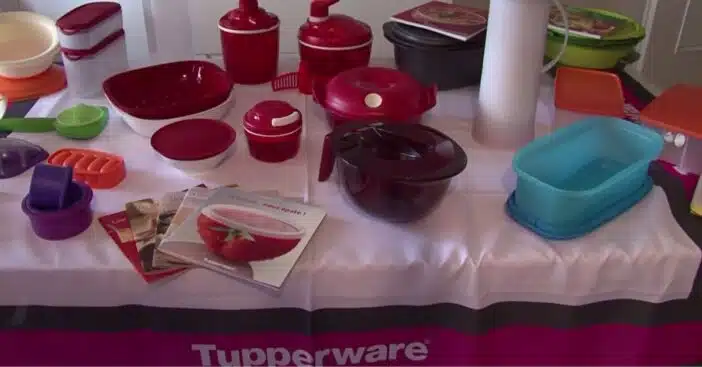
Kitchen staple Tupperware Brands filed for Chapter 11 bankruptcy on Tuesday. The cause is cited as financial woes driven by decreased demand for its food storage containers. The brand’s financial security had been in question for the last “several years,” according to Laurie Ann Goldman, president and CEO of Tupperware Brands Corporation.
The brand had been the subject of the widely popular Tupperware parties that arose in the 1950s. For women, became symbolic of independence and empowerment among the post-war generation, reports CNBC. However, the outlet notes, cheaper and more environmentally-friendly food containers have shouldered Tupperware out of the competition, decades after the company’s establishment in 1938.
Tupperware Brands files for Chapter 11 bankruptcy, but there may be hope yet
Tupperware has filed for bankruptcy. pic.twitter.com/kVJyZhy7EM
— Pop Base (@PopBase) September 18, 2024
“Over the last several years, the company’s financial position has been severely impacted by the challenging macroeconomic environment,” said Goldman in a statement on Tuesday. “This process is meant to provide us with essential flexibility as we pursue strategic alternatives to support our transformation into a digital-first, technology-led company.”
RELATED: Tupperware Closing Its Last US Factory, Laying Off Nearly 150 Employees
“Whether you are a dedicated member of our Tupperware team, sell, cook with, or simply love our Tupperware products, you are a part of our Tupperware family,” Goldman also stressed. “We plan to continue serving our valued customers with the high-quality products they love and trust throughout this process.”
What led to this decision

Fast Company notes that referencing a troublesome “macroeconomic environment” usually means broader factors. These generally can include consumer reluctance to spend on discretionary goods, high interest rates, and inflation. However, Tupperware was reportedly contending with another sort of issue: big changes in business models over the last several decades.
Tupperware would typically work with independent consultants the brand referred to as its Sales Force; this worked as its main sales channel—essentially, the Tupperware parties kept the sales going as the consultants secured sales. Now, with the disappearance of Tupperware parties, the brand has fallen so far under, it declared for bankruptcy.

“The historical strengths of a widespread direct selling model began to turn into weaknesses,” the company explained in its bankruptcy petition. “The Company’s focus on its direct sales model ultimately came at the cost of developing an omnichannel strategy, or even modern e-commerce infrastructure to support its Sales Force.”
Do you still use your Tupperware containers?

